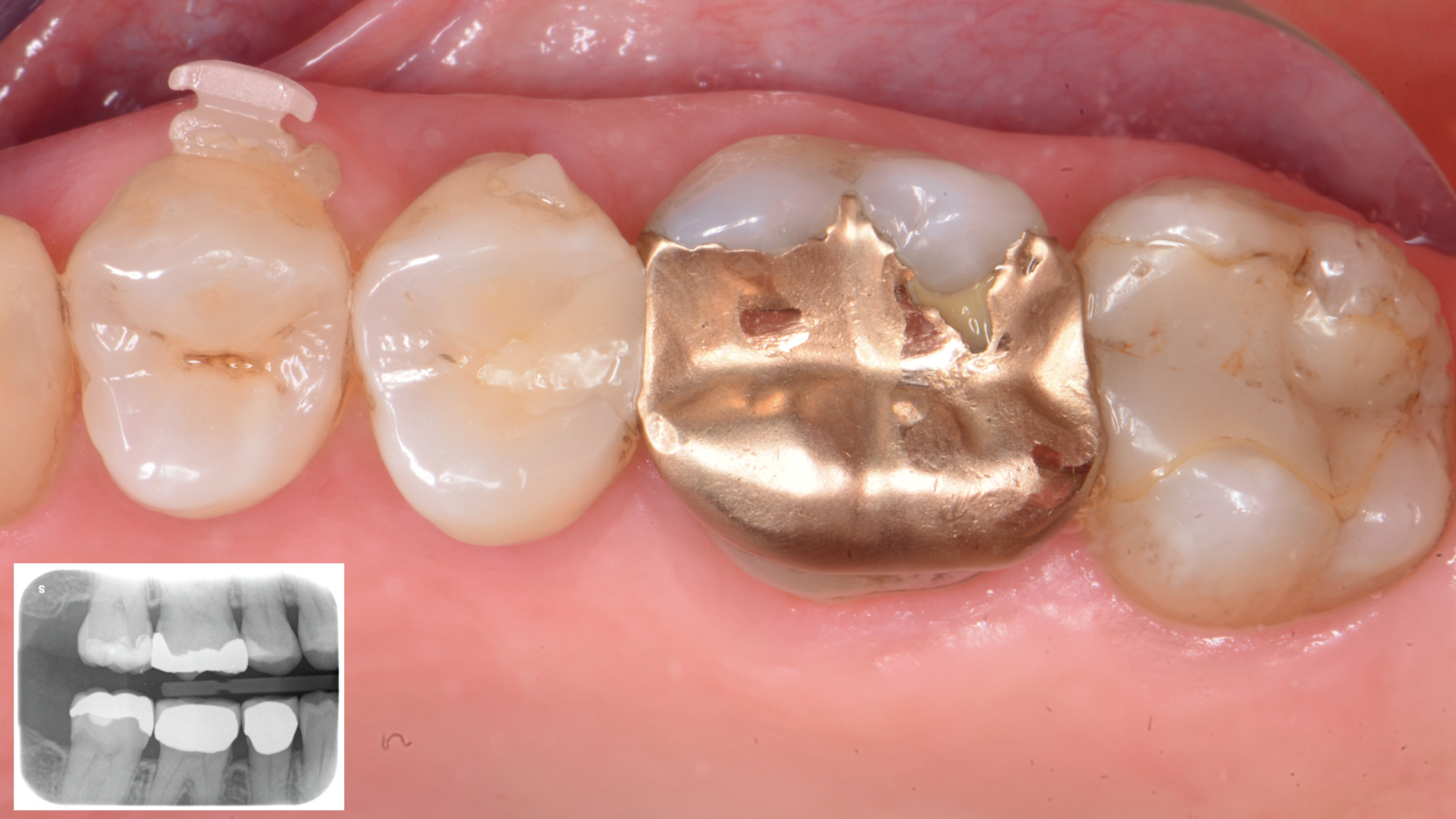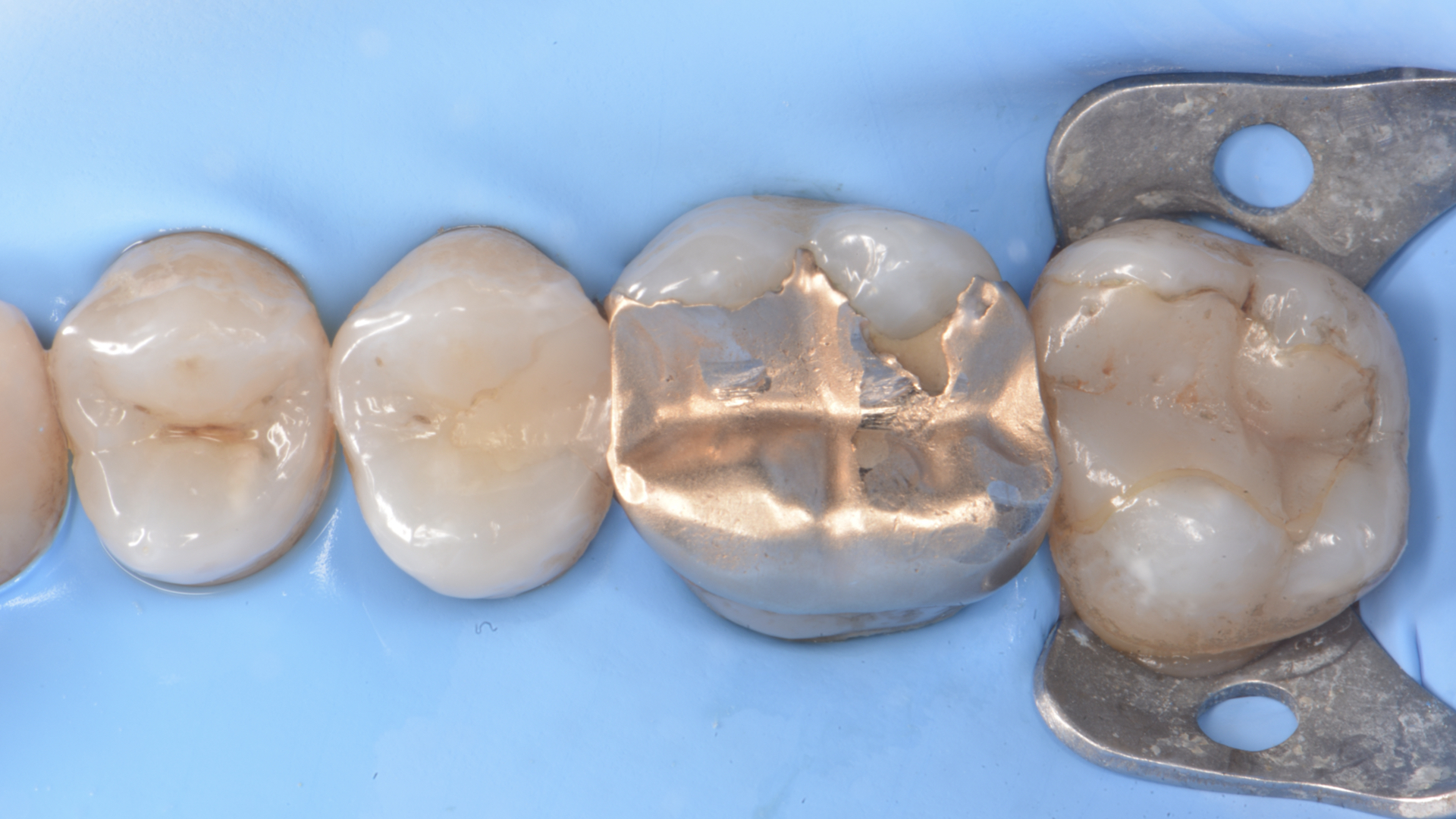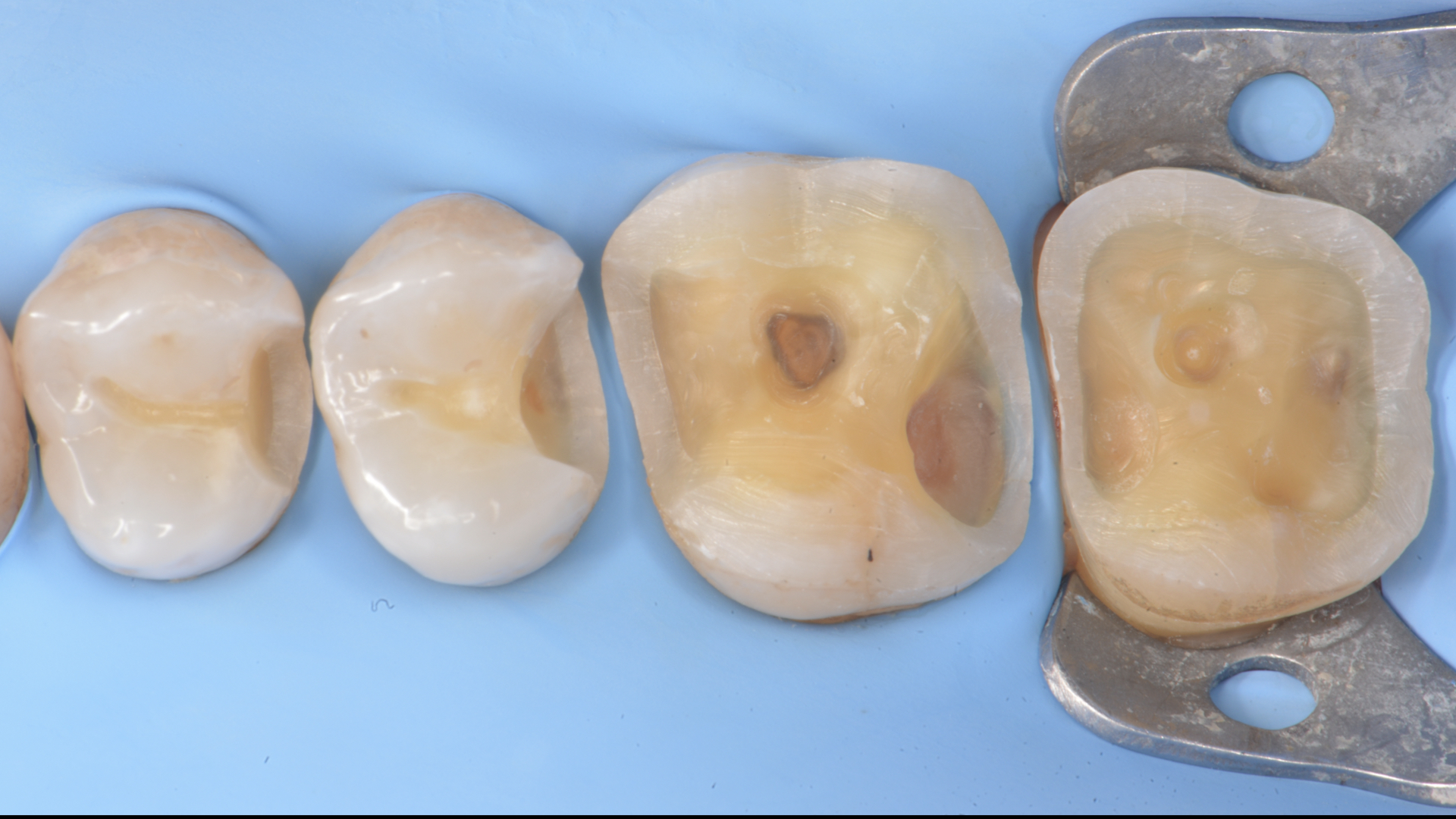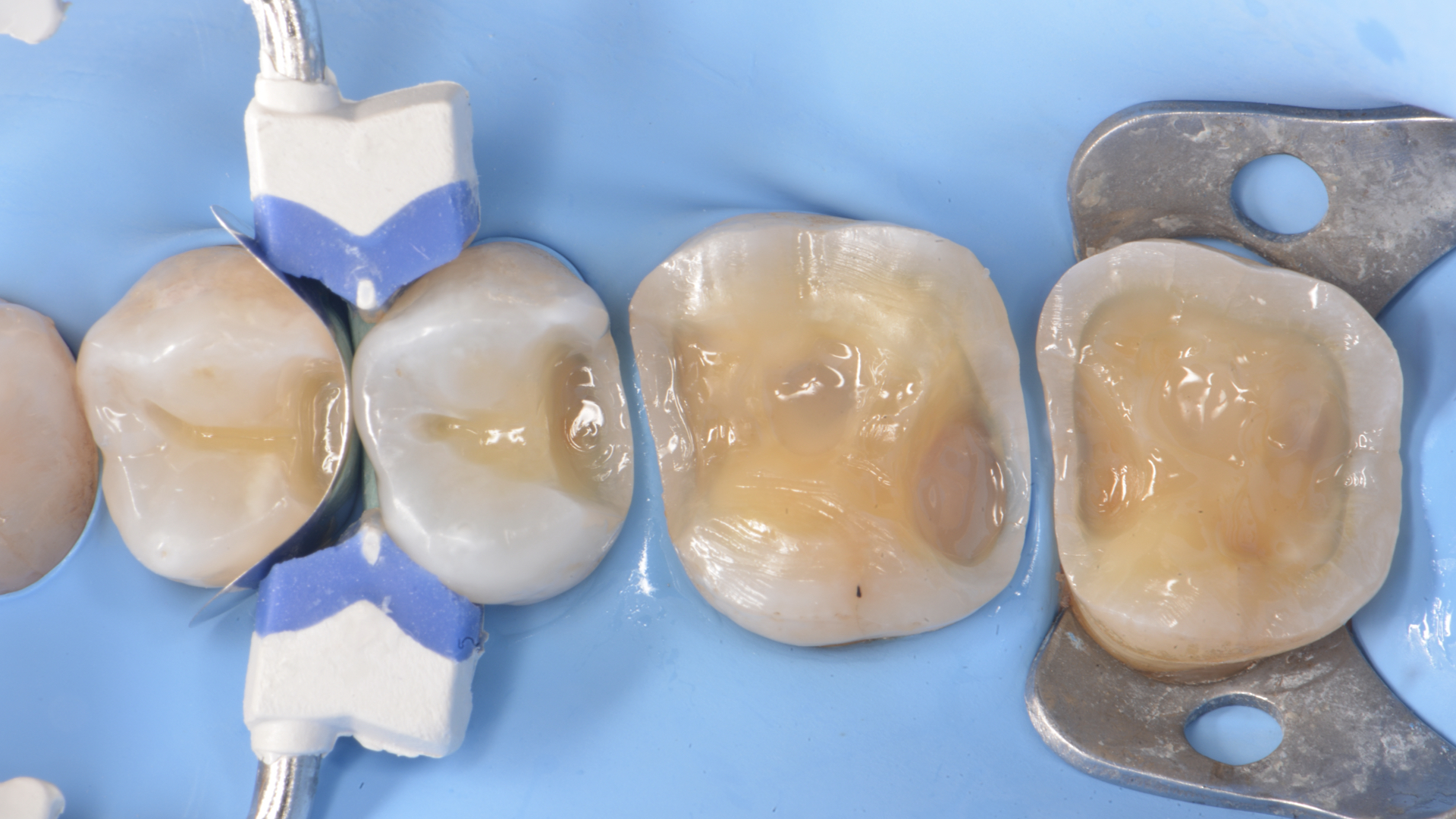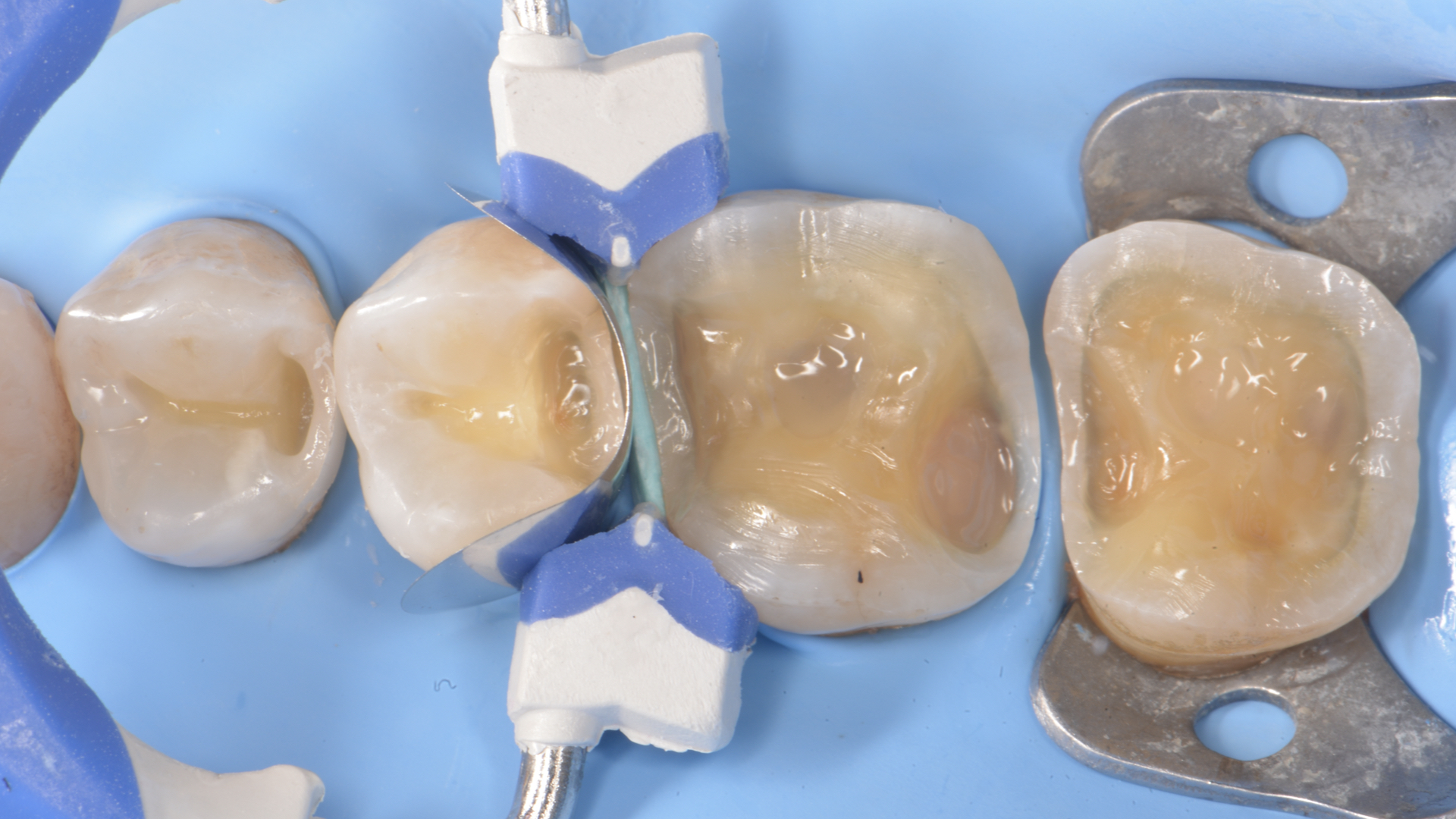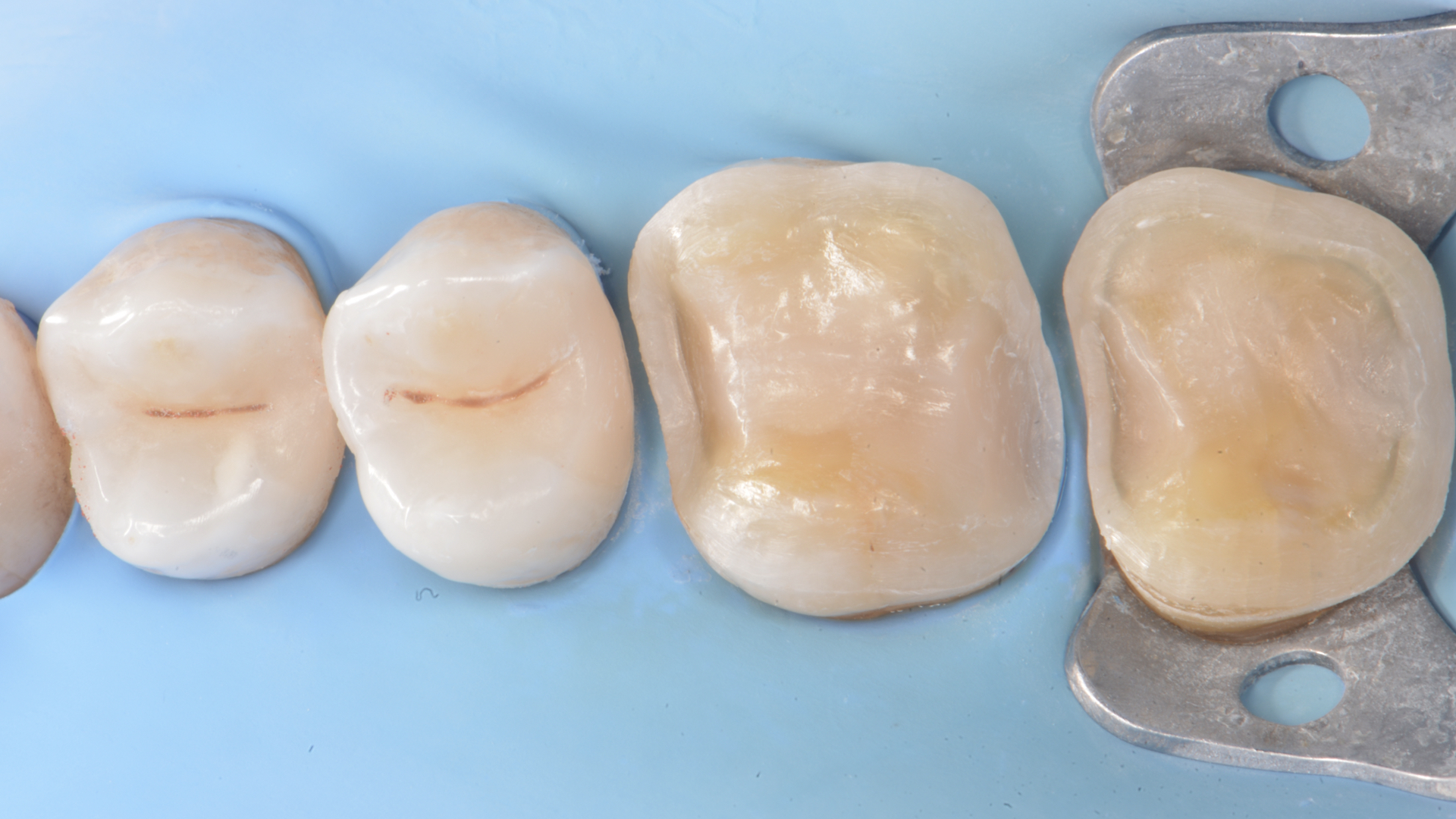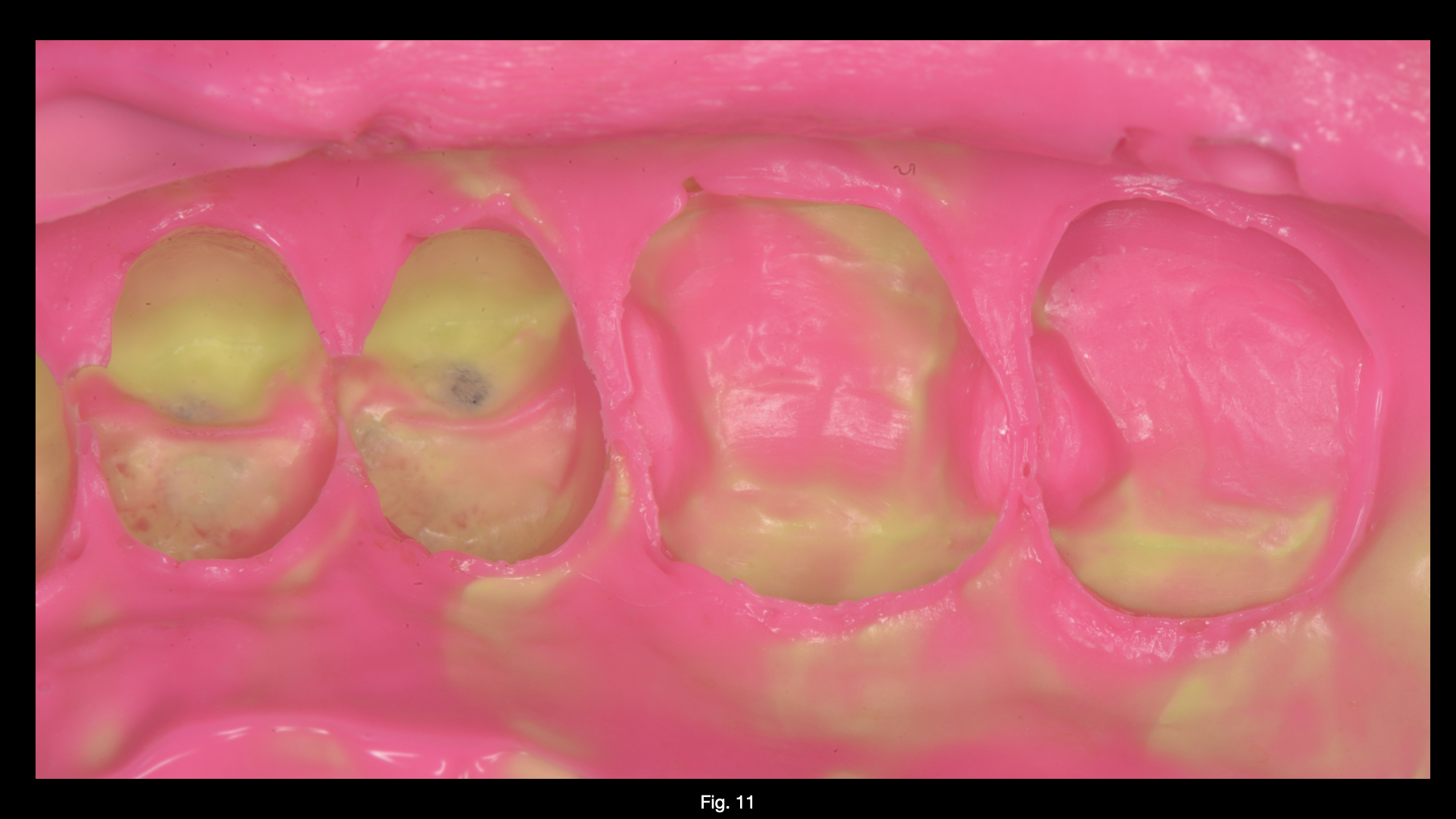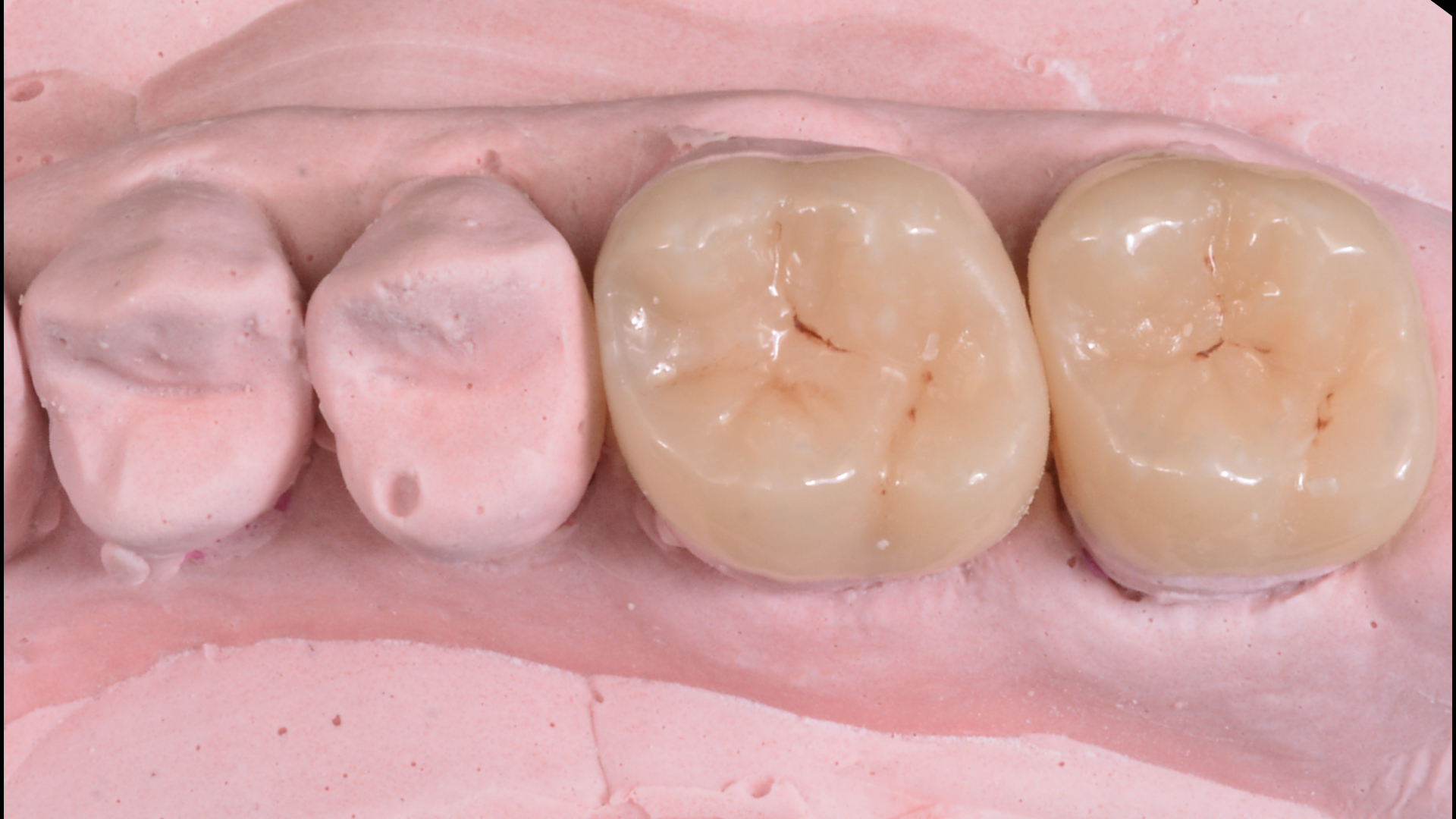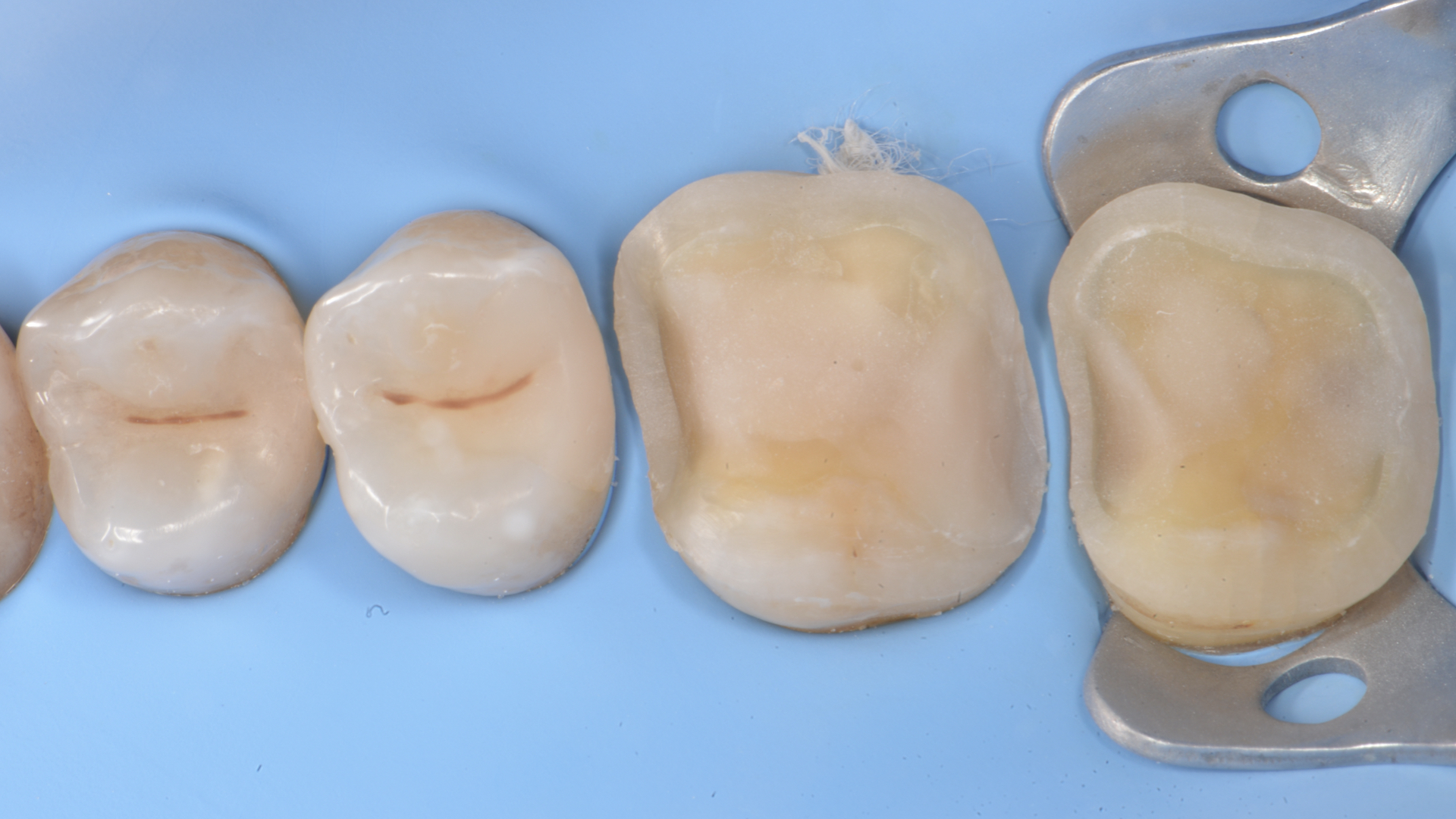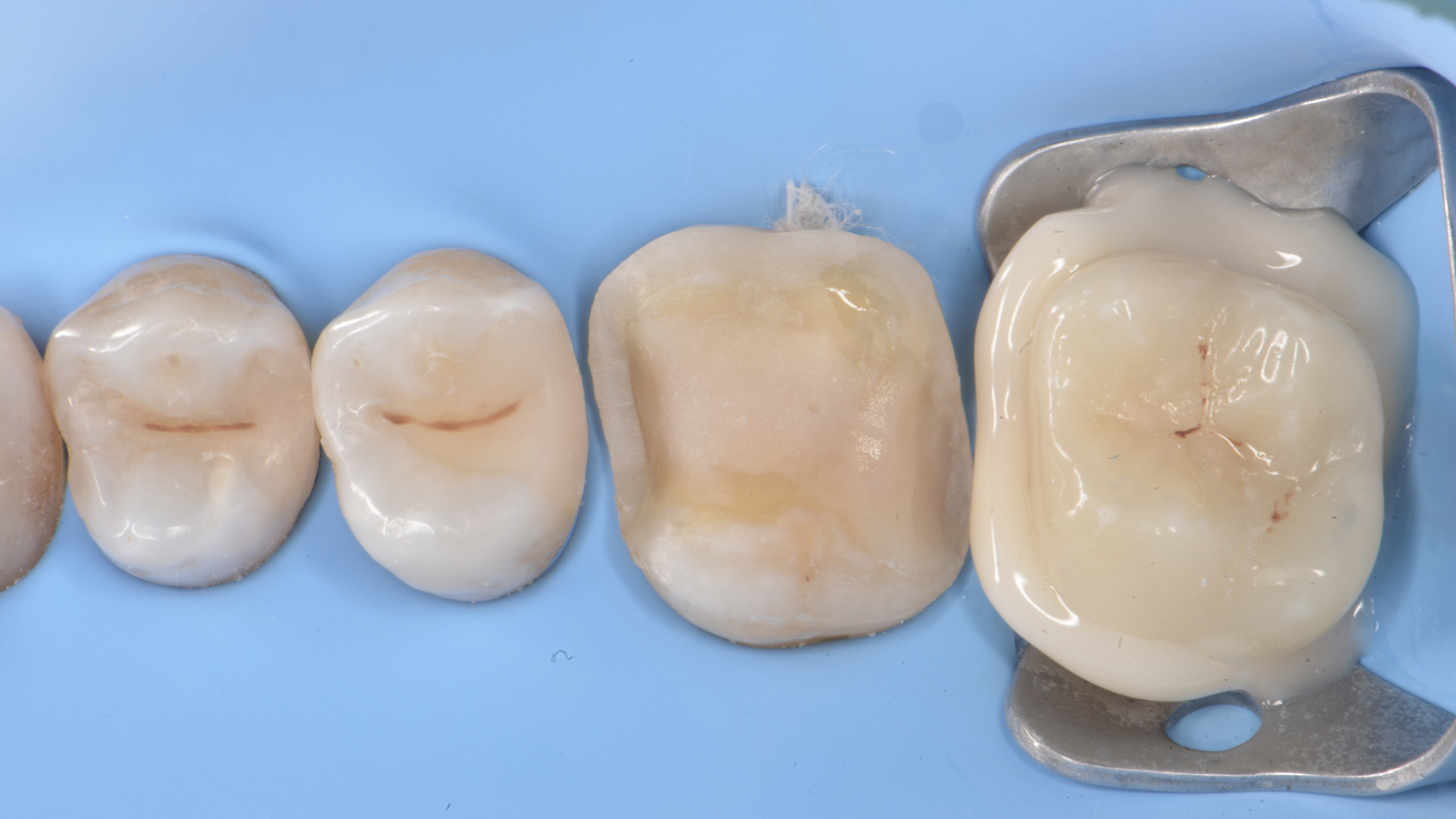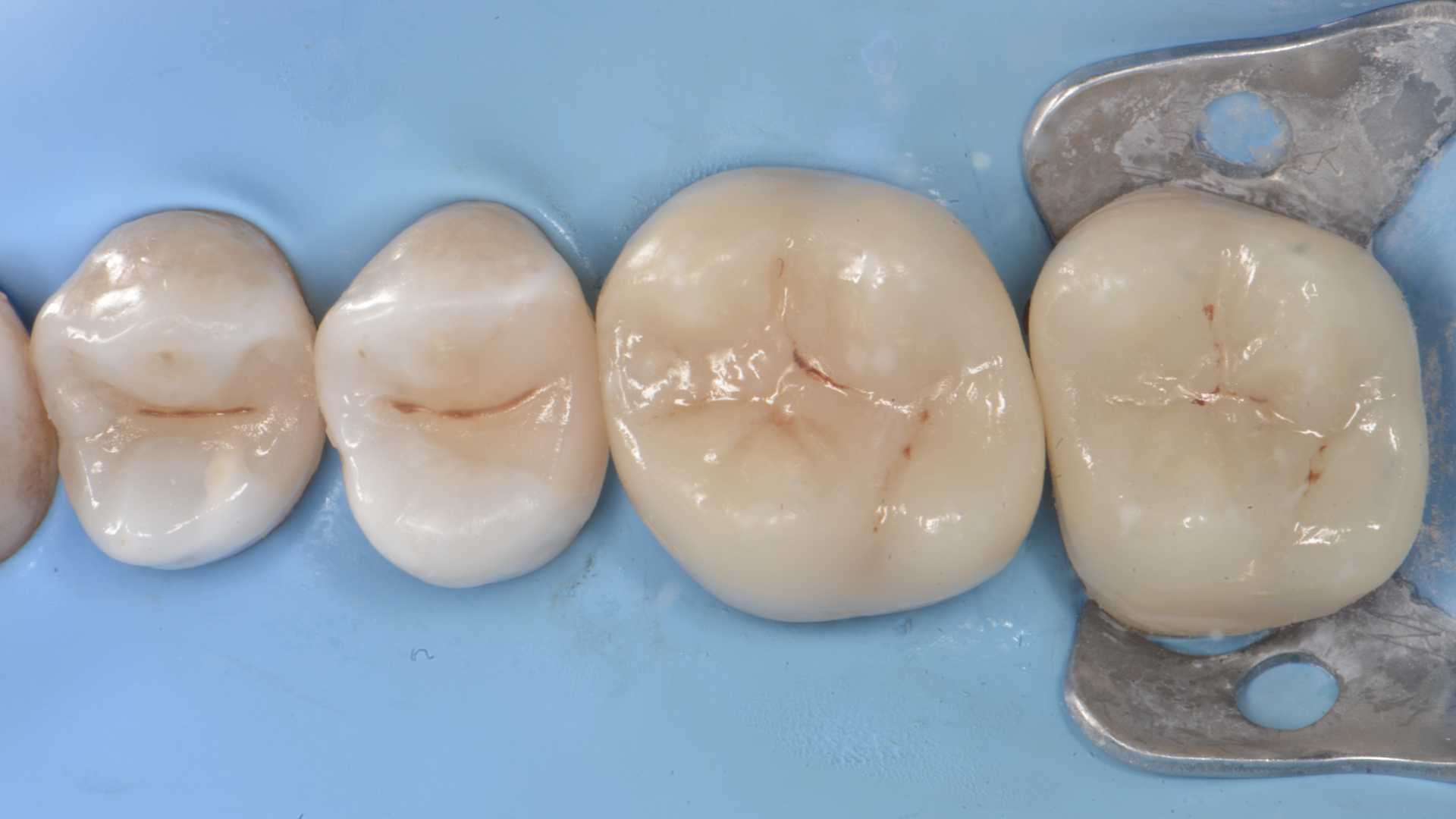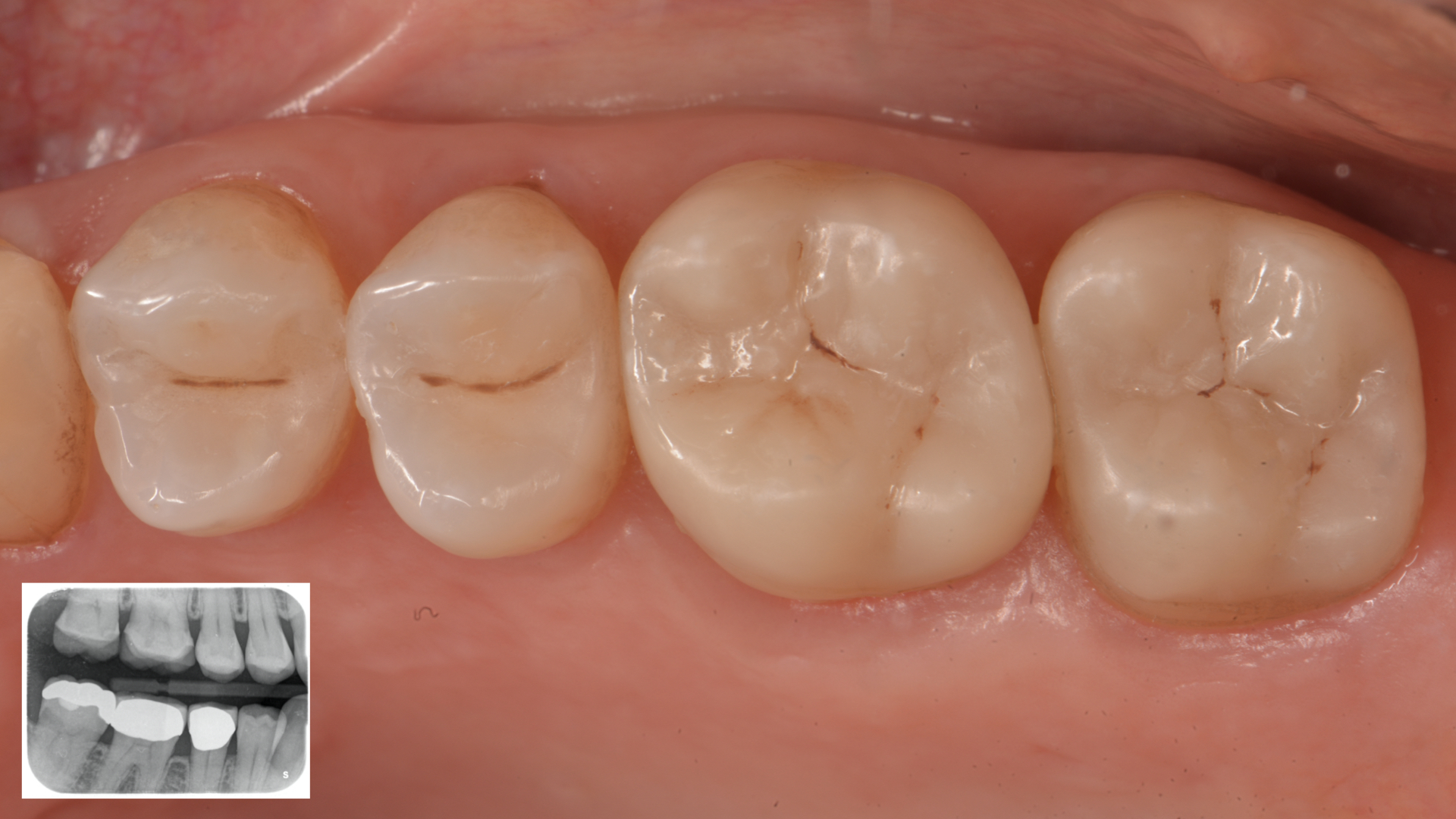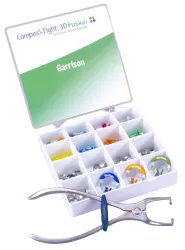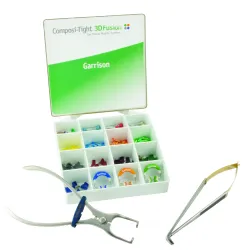A patient came to our office, complaining about chewing and thermic discomfort in the upper right jaw. After clinical and radiographic examination, carious lesions on elements 1.7, 1.6, 1.5 and 1.4 have been detected. We chose direct restorations on teeth 1.4 and 1.5 with minimally invasive approach. On teeth 1.7 and 1.6 were instead selected indirect restorations (hybrid composite).
Full coverage overlays were planned on both elements after an accurate biomechanical evaluation of the residual axial wall. After performing the direct restorations using the sectional system Garrison Composi-tight 3D Fusion, the teeth 1.6 and 1.7 have been prepared.

